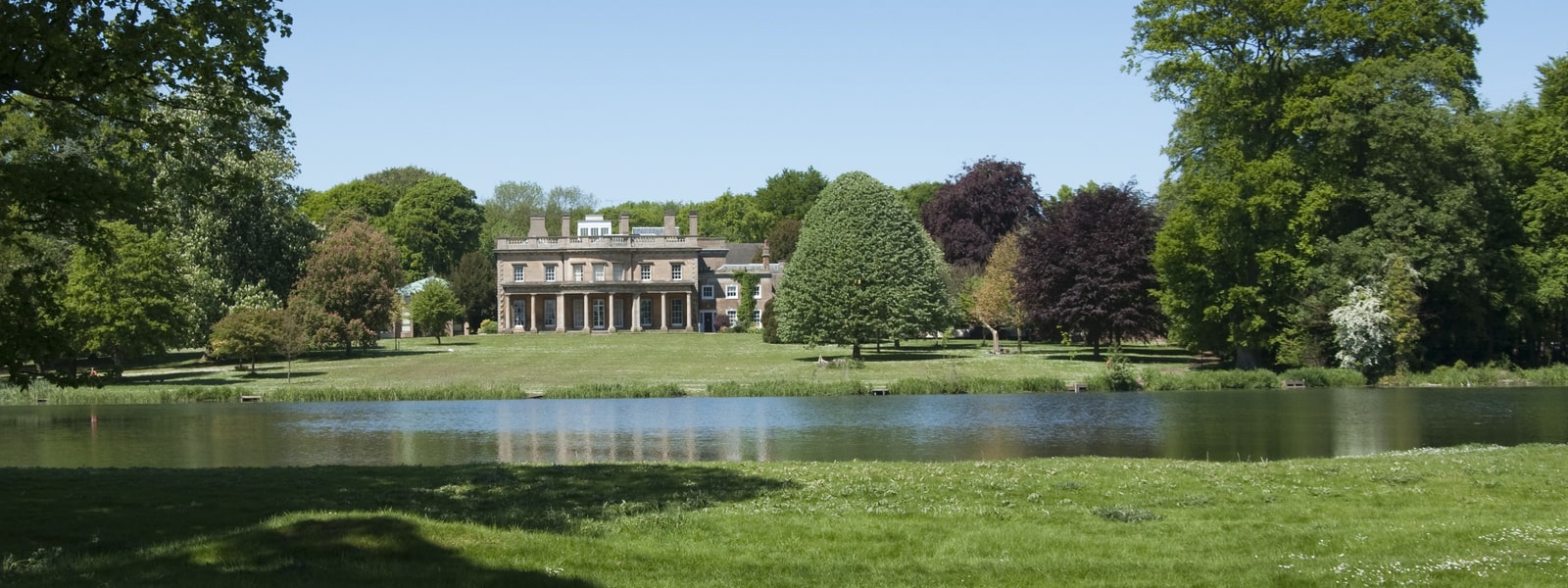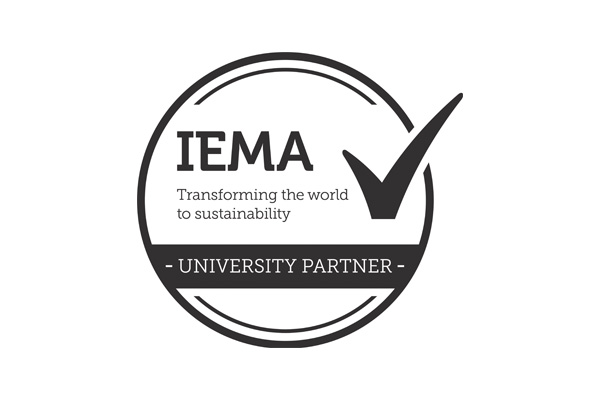Module Overview
This module examines corporate governance concepts and principles in both national and international contexts, developing key skills necessary to support the development of good governance, risk management, control, internal audit, and stakeholder dialogue throughout an organisation. The module provides an overview of the role of boards and directors in corporate governance and also develops an understanding of the essential role that corporate social responsibility (CSR) plays in corporate governance worldwide.
Module Overview
Sustainable Innovation leads to the creation of new markets through products and services or processes driven by the need to address social, environmental, or economic sustainability issues. This approach to innovation lets businesses grow while addressing important challenges like climate change, biodiversity loss, and a reduction in the use of natural resources. This process could also improve business restructuring, recovery and promote economic resilience as well as growth and competitiveness.
The overall aim of the module is for students to gain knowledge and develop understanding that enables them to identify the role of innovation and other leading practices in developing sustainable products and services and providing sustainable solutions, and to identify issues and assess opportunities that deliver innovative and sustainable products and services by using lifecycle thinking and circular economy approaches.
The module will also contribute to preparing students for their relevant dissertation project to be undertaken throughout the year.
Additional aims are to enable students to develop multi-disciplinary skills in researching, organising and presenting relevant information in verbal and written form and applying that information in practice
Module Overview
This module enables students to use data and information sources to inform evidence-based effective sustainability strategies as well as to determine, implement, and measure methods of effective communication of these strategies. An abundance of data and analysis tools and frameworks support the measurement, calculation, or assessment of specific aspects of sustainability e.g. carbon foot printing or the development of business strategy, e.g. to support the delivery of the Sustainable Development Goals. Students will have the opportunity to develop critical analysis skills and implement reflective and reflexive approaches to considering given sustainability aspects, their impact and potential business innovation, mitigation, or adaption strategies. They will also evaluate how to design and deliver an integrated communication plan related to the implementation of sustainability strategies.
Module Overview
This module encourages students to gain knowledge and develop understanding that enables them to critically evaluate environmental sustainability challenges and solutions; their socio-economic impact and their relationship with businesses, products and services.
This will include knowledge/understanding of issues related to climate change, water scarcity, biodiversity loss and ecosystem services, environmental pollution, waste and recycling, energy production and use, liveable environment, and food production; global inequalities; their impact on social systems, cultural practices, community and individuals; and the social and physical determinants of health.
The module will also contribute to preparing students for the dissertation project to be undertaken throughout the year. Students can also develop multidisciplinary skills in researching, organising, and presenting relevant information in verbal and written form, and applying that information in practice.
Module Overview
This module explores the concept of sustainability, sustainable systems, and processes and sustainable living in the context of global urbanisation of populations, finite resource depletion, planetary boundaries, and the significant increase of the global population from 1.6 billion in 1900 to 6 billion in 2000 and around 7.95 billion today.
The development of the eight Millennium Development Goals (2000-2015) and the seventeen Sustainable Development Goals (2015-2030) inform international targets for sustainable development. UN Climate Change Conferences from Kyoto in 1997, COP18 in Doha (2012), and COP26 in Glasgow (2021) sought to gain universal climate agreement between governments to reduce emissions, cut greenhouse gases, and support vulnerable nations to adapt, but global greenhouse gas emissions continue to arise. This module will consider from a wide perspective the context of sustainability, sustainable development, and sustainable living and encourage critical reflection on these themes.
Module Overview
Sustainability Case Study is a single 60-credit module, which will be introduced in the first term of study and continue across terms 2 and 3. It aims to provide students with the experience of developing academic and career development skills, as well as to design and deliver a relevant individual, in-depth scientific study/ investigation.
In the first part, via a range of activities and through interacting with various research groups and teams across the university, students will familiarise themselves with research undertaken across the University and start thinking about their research project/case studies areas. They will also gain access to career advice/opportunities for placements/professional practice. Students will have the opportunity to develop critical academic skills related to finding, evaluating, reading, and understanding relevant sources of literature and clearly and concisely write content to make a point or defend an argument with cited sources.
In the second part and through a series of seminars and group activities, students will be supported in the preliminary stages of project preparation and management. Students will also be allocated an individual project supervisor/advisor and develop a case study proposal and a literature review.
In the third part, students will deliver an original in-depth scientific investigation of a specific sustainability related topic and produce a formal dissertation (sustainability case study) with the advice of an individual project supervisor/advisor. This module is aligned with an optional 12-week work placement module. It aims for students to gain hands-on experience while working in a professional environment as well as collect real-world data and use them in their final research project case study.
Module Overview
This module will focus on sustainability from the perspectives of organisations, business and management. It will explore the underlying causes of present-day challenges with sustainability at both an organisational and societal level. The module will also address the barriers and enablers associated with bringing about the essential transition to sustainability across industrial sectors and within individual organisations. Students will consider alternative forms of organisation and create solutions for addressing societal and environmental injustice.
Module Overview
The MSc Sustainability programme is also available with an option for a 12-week term 3 paid or volunteering work placement (professional practice). This module is aligned with the sustainability research project case study 60-credit module. It aims for students to gain hands-on experience while working in a professional environment as well as collect real-world data and use them in their final research project case study. Students will be responsible for sourcing their own placements but will be supported by academic staff and the University.
Module Overview
Globally, construction industries are responsible for about half of worldwide carbon emissions, and global, national, and regional legislation is a key driver in improving the energy and carbon efficiency of the built environment. This module covers the fundamental principles of, and imperatives for, sustainable and low carbon design, construction and occupation of buildings. This includes the complex, challenging, and sometimes contradictory elements of legislation that drive our collective response to climate change.
The fundamental methodologies for designing, constructing, and occupying sustainable buildings starts with the site, and a thorough understanding of the impact of the environmental and physical surroundings of a building. It then considers the construction process and how to make this most efficient, lean, and sustainable by minimising impact. Finally, it considers behavioural issues relating to occupancy and use of the buildings we live and work in, in order to minimise the impact on the environment.
Module Overview
This module deals with current and potential future energy systems, covering resources, extraction, conversion, and end-use technologies, with emphasis on meeting regional and global energy needs in the 21st century in a sustainable manner. The course includes the review of various renewable and conventional energy production technologies, energy end-use practices and alternatives, and consumption practices in different countries. Students are given the opportunity to learn a quali-quantitative framework to aid in evaluation and analysis of energy technology system proposals in the context of engineering, political, social, economic, and environmental goals.
Module Overview
Global food security faces a number of challenges across both production and consumption. This module examines challenges and problems related to the sustainability of future food production systems such as changes in population, land use, biodiversity, climate change, and resource availability and use efficiency. This module also critically evaluates solutions proposed to deliver healthy, sustainable, and resilient food systems while meeting both the Sustainable Development Goals and the Paris Agreement.






